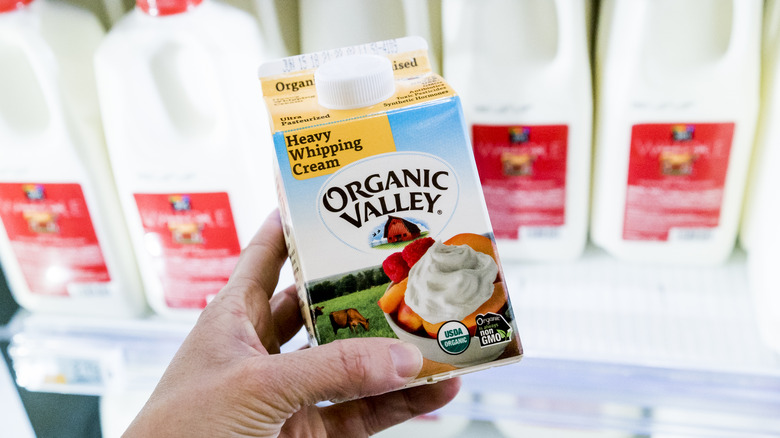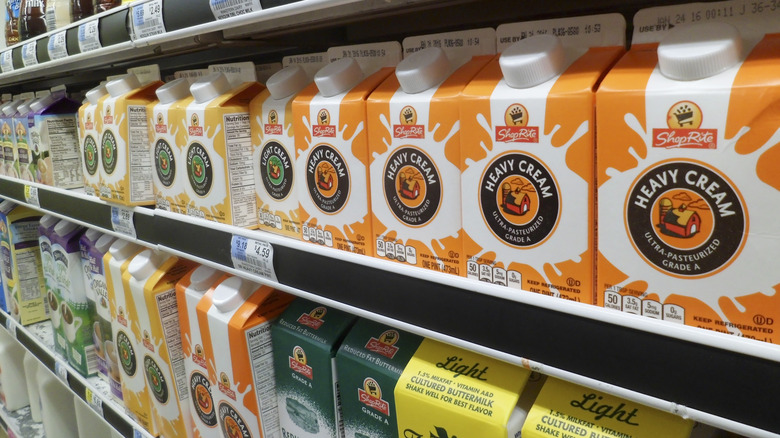How Long Heavy Cream Will Stay Fresh After Opening
Heavy cream, or heavy whipping cream, as it is sometimes called, is an essential ingredient for countless recipes, from soups to pasta and desserts. There's no need to worry if you don't plan to use up a whole carton at once, either, as heavy cream stays fresh for a surprisingly long time, assuming it's refrigerated properly and hasn't been left out on the counter.
After opening, heavy cream can last for one month. Why is this dairy product so long-lasting, when compared to things like milk or yogurt? It's partly due to heavy cream's high fat content, which keeps it from spoiling too quickly once it has been opened. Heavy cream contains between 36% and 40% milkfat, which is more than double the percentage in half and half (a combination of milk and heavy cream). Also, heavy cream is often ultra-pasteurized, meaning it's been exposed to ultra-high temperatures (abbreviated as UHT), a process which prevents spoilage and prolongs its freshness.
To maximize the time your heavy cream remains fresh, keep it in the refrigerator when not in use, and store it in the coldest part (the bottom shelf at the back). In fact, if you're really interested in preserving heavy cream for as long as possible, you can freeze it to extend its shelf life.
How to tell if heavy cream is still good
If you store heavy cream properly in the fridge, it should remain fresh for a period of several weeks to a month, but keeping an eye on the expiration date and the quality of the product is always a good idea. First of all, just because heavy cream has passed its expiration date doesn't necessarily mean it's bad. According to the Food Safety and Inspection Service (FSIS) of the U.S. Department of Agriculture, most food products are still safe beyond "use-by," "sell-by," or "best-by" dates, as long as they don't show evident signs of spoilage. However, when food passes this date, it still means you should try to use it up quickly, before it actually starts to spoil.
What signs should you look for if you suspect your cream is too old? Heavy cream that is going bad typically displays the same telltale signs as other dairy milk products. Lumps or curdling, for example, mean the cream definitely should not be used, and sour or "off" smells also mean it's time to throw it away. You shouldn't blindly use food products that might actually be spoiled, just because their age is under their typical shelf life. Sensory cues should be used and trusted to help you decide if that cream should go into your coffee, soup, or mac and cheese.


